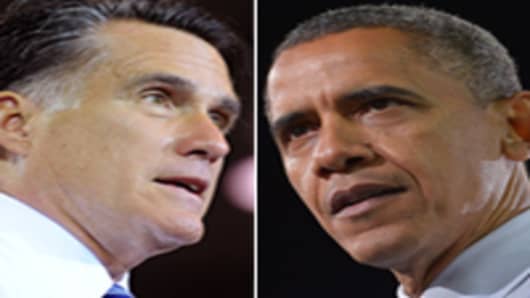With student loans and college tuition soaring to record highs, how to tame the educational system is on the minds of many voters—old and young alike.
So what will President Barack Obama and Mitt Romney say they'll do about education if they're in the White House in the next four years? Take a look at their reported positions.
Obama: bama is opposed to vouchers and using any public tax money to pay tuition at private schools. He and other voucher critics have cited studies showing that children attending private schools with vouchers did not perform better academically than children in public schools.
The Obama administration has said giving tax money to private schools drains resources from public schools. However, Obama has allowed government funding for a $17 million voucher program created by Congress for Washington, D.C., schools.
In his first term, Obama approved waivers freeing states from the toughest student and teacher achievement testing requirements of the 2002 Bush-era No Child Left Behind law. And Obama used $5 billion from the 2010 economic stimulus package to create "Race to the Top," a grant competition that has rewarded winning states with billions of dollars for pursuing education policies Obama supports. (Read More: Most Expensive Private Schools)
The average tuition at four-year public colleges surged 26 percent during the last four years, as many cash-strapped state governments cut aid to state schools. But federal grants and tax credits sheltered students from most of the increase, leaving them paying only $570 more, as Obama got approval from Congress for a college tuition tax credit worth up to $10,000 over four years and more money for Pell Grants for low-income college students.
However, Obama says he wants Congress to agree to reduce federal aid to colleges that go too far in raising tuition. (Read More: Best Colleges for High Salaries)
Obama wanted to preserve a key federal student loan interest rate at 3.4 percent. The rate had been scheduled to double, an increase the president said would hurt students and parents. Congress voted in June of this year to avert a higher rate.
Obama also wants to tighten federal oversight of for-profit colleges. He has said that too many students graduate from these types of schools in too much debt.



